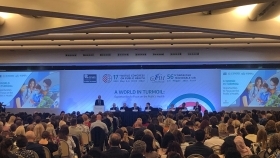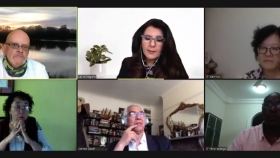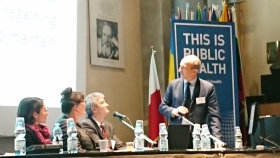
by strengthening education and training
of public health professionals
for both practice and research



The Association of Schools of Public Health in the European Region (ASPHER)
ASPHER is the key independent European organisation dedicated to strengthening the role of public health by improving education and training of public health professionals for both practice and research.Secretariat updates
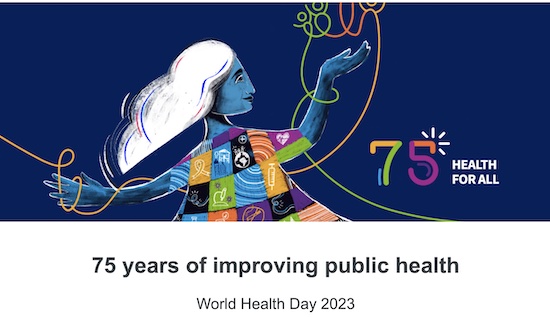
World Health Day this year marks the 75th birthday of the World Health Organization. Founded alongside the United Nations, it was accompanied by a family of global organisations, including UNICEF, the World Bank and Food and Agriculture Organization. Global policy governance was borne out of a time of post-World War political optimism with a universal desire to address William Beveridge’s five giant evils - want, idleness, ignorance, squalor, and disease. There was a vision to rebuild a fairer, cleaner, healthier, wiser, and productive global community. And it was a time for the old colonial powers to retreat and for new independence to come to the global south.
Previous efforts to bring together international efforts on health had had limited success, hindered by World Wars and other conflicts across the globe. The Pan American Health Organization, the first international health grouping, became one of the regions of WHO. The League of Nations Health Organisation existed before WHO and much of its work was assimilated into WHO. The World Health Organization met for the first time on April 7th 1948 and the first World Health Assembly followed in June that year.
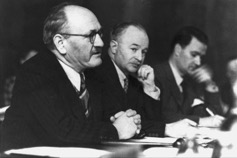 Andrija Štampar was one of the heroes of European public health and has been an inspiration for ASPHER members. His name is given to our most exalted award, for excellence in public health. He had been a leading member of League of Nations Health Organisation and became one of the founding members of the WHO. He liked to quote Proverbs… ‘Where there is no vision, the people perish’.
Andrija Štampar was one of the heroes of European public health and has been an inspiration for ASPHER members. His name is given to our most exalted award, for excellence in public health. He had been a leading member of League of Nations Health Organisation and became one of the founding members of the WHO. He liked to quote Proverbs… ‘Where there is no vision, the people perish’.
The World Health Organization has been strong on vision over many years. The vision to eradicate smallpox began a long time back in WHO but a plan began in earnest in 1967. The last confirmed case was in Somalia, in 1977, and in the Birmingham tragedy, in 1978. The world was declared free of smallpox in 1980. WHO rightly describes this achievement as among the most notable and profound public health successes in history.
Emboldened perhaps by the successful eradication of smallpox, WHO launched the ambitious Alma-Ata Declaration for primary health care in 1978. The Declaration stimulated the Global Strategy for Health for All by the Year 2000. In Europe, this led to the publication of 38 European Targets for Health for All by the Year 2000 in 1985. The challenge of how to implement this vision locally, at the city level, captured the imagination of many of the new public health pioneers, Ilona Kickbusch, Slobodan Lang, John Ashton and others. Under the WHO EURO leadership of Jo Asvall the European Healthy Cities Project Network was formally establish in 1988 (with the Zagreb Conference). The targets gave impetus to many local health plans and strategies across European cities and today it is connecting over 2000 cities just in Europe. The Healthy Regions project followed sometime later, and together they have contributed to the drive for health in all policies and for multidisciplinary action for public health. Healthy Cities required, and still does, political commitment and a defined budget for health. Health Cities, and Healthy Regions has given strong support to public health practitioners and services on the ground.
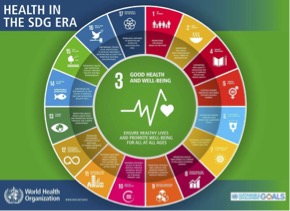 After 2000, the WHO European visions for Health21 and Health 2020 have been less specific, and less defined in their targets. Nevertheless, they still provided a bedrock for policy makers at national and local levels. The global vision for health is now subsumed into the Sustainable Development Goals. Health thinking is clear throughout the SDGs, and WHO is the lead global actor for SDG 3. The cross referencing with the other goals is strong and demonstrate that ‘public health is everybody’s business’. The SDGs are the driver and reference point we should all be using to frame our policy making.
After 2000, the WHO European visions for Health21 and Health 2020 have been less specific, and less defined in their targets. Nevertheless, they still provided a bedrock for policy makers at national and local levels. The global vision for health is now subsumed into the Sustainable Development Goals. Health thinking is clear throughout the SDGs, and WHO is the lead global actor for SDG 3. The cross referencing with the other goals is strong and demonstrate that ‘public health is everybody’s business’. The SDGs are the driver and reference point we should all be using to frame our policy making.
WHO has been active in response to HIV/AIDS, Ebola and M-pox — but has it been timely, and has it been enough? The pandemic has shown us we need more, and better global public health resources. The Association of Schools of Public Health in the European Region (ASPHER) and the Global Network for Academic Public Health called for solidarity in support for WHO during the pandemic. There is of course a need for proper reflection and evaluation after the events. No single country can protect itself from new health threats, however wealthy, however sophisticated in its science and however strongly committed to public service is its government. We need to see a vigorous and well-resourced WHO, able to support countries in emergency responses, across the world. And develop their health systems, not just impose responses to individual health problems. And we need to see investment in public health training and education across the globe. To this end ASPHER is working with the WHO Steering group on the ‘Roadmap’: the National workforce capacity to implement the essential public health functions including a focus on emergency preparedness and response: roadmap for aligning WHO and partner contributions. This is vital work in support of the Pandemic Preparedness Treaty due to come to the World Health Assembly in 2024. Opportunities for eligible countries to bid for Pandemic Fund investment are set out in the ASPHER blog ‘Progress on the WHO public health and emergency road map: check out the Pandemic Fund!’
WHO has its detractors. It has needed to operate in the most complex and political fraught situations anyone can face. It has had to battle political intransigence, chronic underfunding and worse, failures to deliver on promises of support from national governments. Its objectives have been distorted by funding donors, with a desire for their own pet projects to succeed, often compromising local infrastructure for public health and distorting the priorities in health needs of governments and their health services.
If we did not have a World Health Organization, we would have to invent one. In all our interests we must back the organisation, be robust and critical friends, but be wholesome in our support and our commitment to WHO initiatives and policy advice. In the 21st century era of disinformation, climate breakdown, mass marketing of unhealthy products and services by multinationals, the commercial plunder of the environment, political corruption and geopolitical instability, we need unity in the global health community. So Happy 75th Birthday, World Health Organization. Here’s to the next 75!
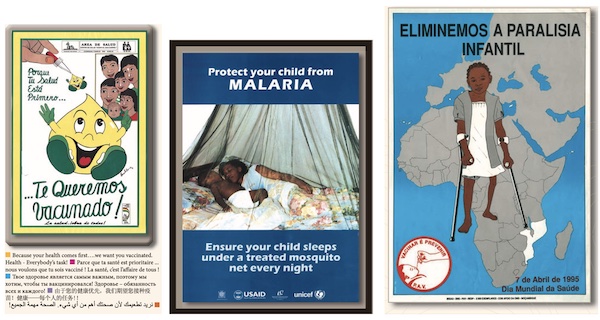
John Middleton and Selma Šogoric
Co-chairs, ASPHER Honours Platform
Terms of use · Transparency statement ·Tel: +32 2 735 0890 ·Skype: ASPHERskype ·Mail: office@aspher.org ·Share:
ADDRESS
Aspher SecretariatUM Brussels Campus
Av de l'Armée / Legerlaan 10
BE-1040 Brussels


